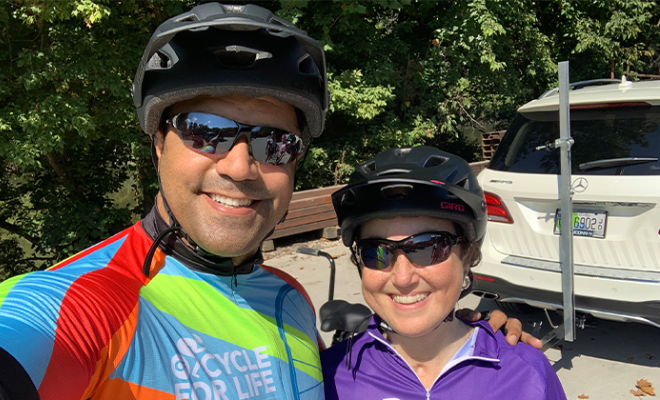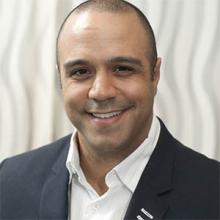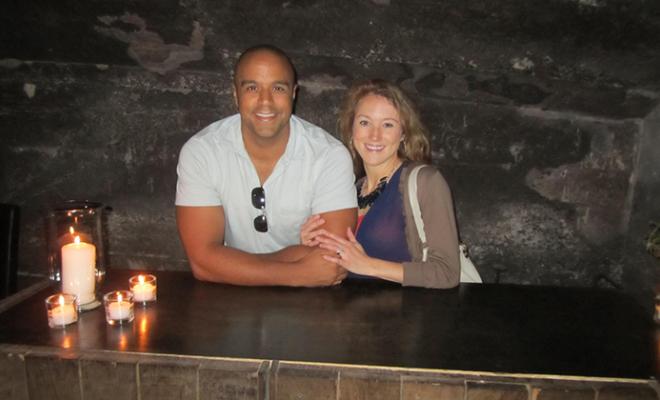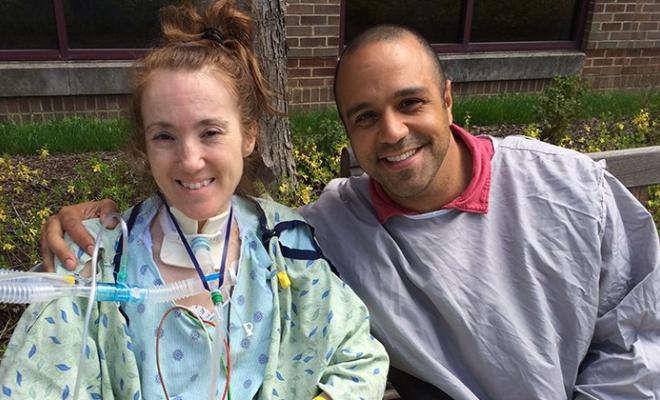Most people would say they would do everything in their power to support someone. Throughout COVID my wife, Rebecca, and I heard this from so many people in our lives. It’s so easy to throw a heart emoji on a Facebook post and proclaim how supportive you are. It even gets a lot of heart and care emoji reactions in response … win-win. However, it was a different story when someone close to us was challenged to live up to that promise.
Both before and during the early stages of COVID, this person was always claiming to be her ‘ride or die’ — someone who would be there, surmount any challenge, and fight against the odds to be her champion. They understood my wife’s challenges with CF and her struggle to get a lung transplant. Living through her respiratory failure on New Year’s Eve, six weeks in a coma, six months on a ventilator, and 17 days on extracorporeal membrane oxygenation (ECMO), they saw her as she fought to live. She worked to recover, to walk again, and then fight every infection knowing all the while that each one risked rejection. They knew how the anti-rejection meds suppressed her immune system and they supposedly understood how high the risk of COVID is to someone who has had a double-lung transplant.
From the start of the lockdown, our next 22 months were spent mostly in isolation. I was so worried for my wife that I even convinced her not to go to the grocery store and safely pop the trunk for loading.
I took on everything outside our house and felt the weight of that responsibility whenever I grabbed a door handle, pumped gas, or went into the store. We missed out on visits from family and friends all to keep her safe.
We eventually planned a couple of visits with those who cared enough about us to test and isolate prior. We only did this with people we trusted immensely and who knew what isolating really entailed. After all that time, we were very much looking forward to seeing everyone again.
At the same time, Rebecca’s big supporter was going out, meeting new friends, and posing cheek to maskless cheek for selfies in packed bars. We worried for them, but at the same time realized that the COVID threat would have to drastically change before we could see them again.
So, when we heard about the COVID vaccines, we were naturally thrilled. However, Rebecca’s vaccination didn’t produce an effective antibody response, though we were lucky enough to get a prophylactic treatment of EvusheldTM monoclonal antibodies. I got my vaccine and we watched with hope as so many of our loved ones did to. Being able to loosen our grip, even slightly, opened a new world to us.
We knew that we couldn’t visit anyone who hadn’t received a vaccine, as her transplant clinic made that crystal clear. However, we couldn’t imagine this could be an issue for the people that loved us and saw what she went through to survive. But her most communicative supporter refused. While simultaneously claiming they were not anti-vax, they referenced a few Facebook-based theories and a fear of needles … and that was it. Despite both of us having some professional knowledge on the subject and walking through each of the concerns and misconceptions, it was not enough. It’s been years since we’ve seen them and now it could be years more.
The most frustrating part came when we rented a house in Arizona with my family. We were finally comfortable leaving home to spend time with people who were not only vaccinated, but who had isolated and tested before we got together. We worked together to plan activities around Rebecca’s safety. And it was worth it. It was as needed as much as it was memorable.
Then came the frustrated call. “How can you visit with them and not us? You’re unreasonable. You would be just fine if we saw you! This is unfair.” I’m paraphrasing, but this was the basis of the guilt trip. They compared brief, masked public activities with an extended maskless stay.
There’s little more frustrating than wanting to say something, but feeling you shouldn’t. So, I boil inside just a little bit. I wonder why they feel that my wife is the one who should compromise. How you can claim to be a ‘ride or die’ ... it's probably more accurate to say ‘ride ... or perhaps don’t ride due to a minor inconvenience.’
But how can you claim to do anything for someone if you’re not willing to do what literally billions around the world have safely done? You can’t be someone’s top defender if you’re not willing to protect them from yourself. You shouldn’t be laying on a guilt trip if you can’t articulate a valid reason why you’d put a loved one at risk. And you can’t claim the risk is low unless you know more than the doctors that saved her life.
We saw how the people that really wanted to support us jumped through hoops over and over again. I wish I could say I learned something new or figured out some complex life problem, but it all boils down to a maxim my grandmother used to say: actions speak louder than words. I can’t find a better way to rationalize all the contradictions other than by that simple message. So, for those people whose actions support us, we are truly thankful.
Interested in sharing your story? The CF Community Blog wants to hear from you.





